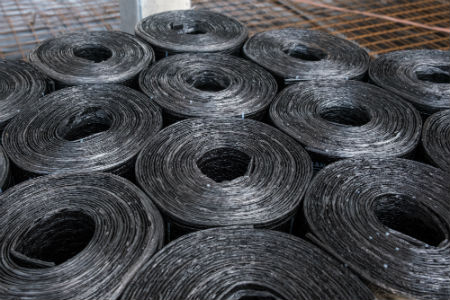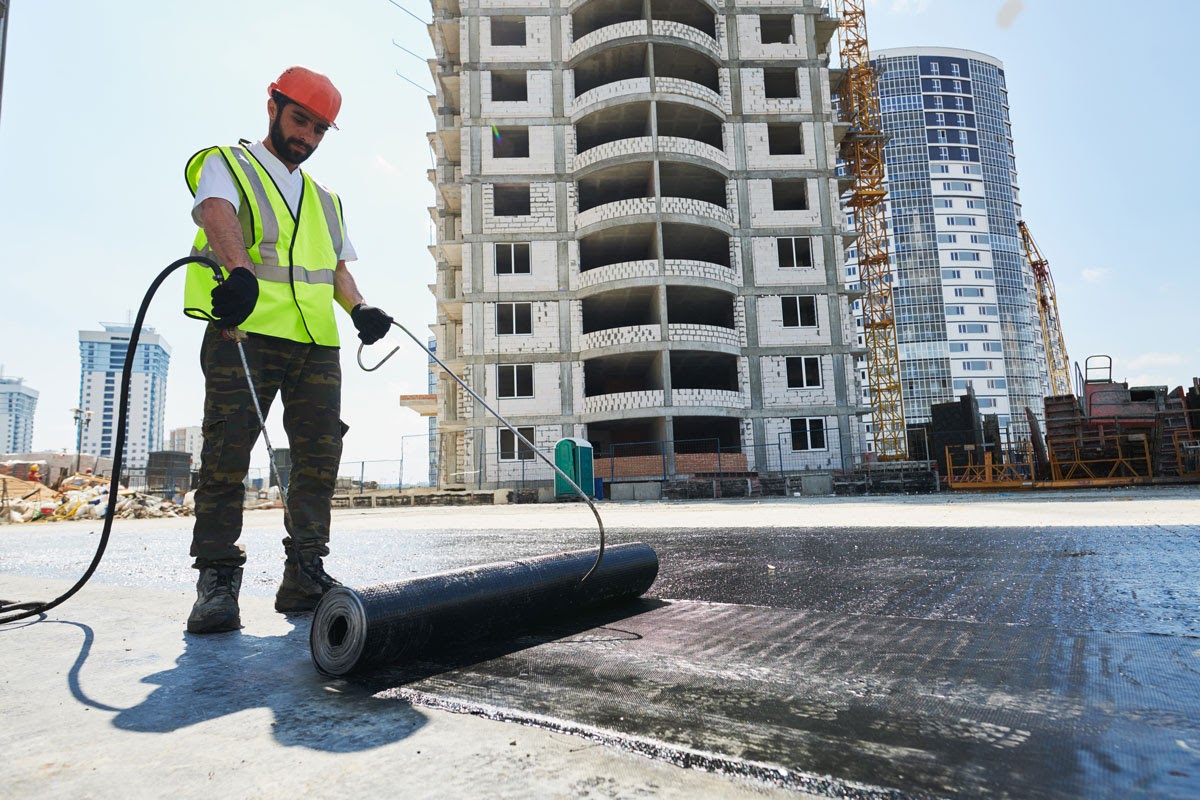Bitumen membranes are popular for the protection of flat or low-slope roofs, especially for commercial buildings with large square footages.
This method of waterproofing and shielding the roof has been around for decades, but some recent advancements in material technology have yielded even stronger, more resilient roofs that can last for as long as 20 years or more. This is great news for commercial property owners in Colorado!
In this article, the roofing experts at A-to-Z Roofing and Exteriors are diving deep into the fundamentals of bitumen membranes as they’re used on commercial roofs. We’ll be discussing what exactly these membranes are, how they’re applied, and what the pros and cons are.
Let’s get started!
Bitumen Membranes, Defined
Simply put, a bitumen membrane is composed of an asphalt-based substance that comes in liquid or semi-solid forms. This substance is derived from petroleum, and it’s actually used in applications that have nothing to do with roofing! Some include basement waterproofing, bridge protection, tank lining, and protecting below-ground structures.
There are three main features that make a bitumen membrane ideal for use on a commercial roof. They are:
- Bitumen membranes are hydrophobic. This means that they actively repel water.
- Bitumen membranes are easily installed onto roofs of virtually any size, shape, or geometry (as long as they are flat or low-sloped).
- Bitumen membranes are cost-effective. The material costs for most commercial roofing applications averages to about $2.00-$4.00 per square foot (this is in addition to labor and/or disposal fees).
These three features of bitumen membranes account for why this particular roofing technology is used on 60-70% of flat roofs, worldwide.
Bitumen Application Technologies
Self-Adhesive Bitumen
Remember peeling off the backs of stickers when you were a kid? That’s basically how a self-adhesive bitumen membrane is installed. This method of installation is fast, safe, and effective.
Hot-Melt Bitumen
Hot-melt bitumen is slightly modified with the inclusion of polymers, making it more ‘gluey’. This form of bitumen comes in large blocks that require heat to melt before application. Hot-melt bitumen can be messy to install, but the results are long-lasting and reliable.
LAM (Liquid-Applied Membrane)

Also called a ‘cold-applied membrane’, a LAM bitumen membrane starts as a liquid that is spread evenly over the surface of the roof. This substance eliminates the need for torches or other heat sources, making installation safer and faster.
Advantages of Bitumen Membranes for Commercial Roofs
There are some great reasons to opt for a bitumen membrane for your flat or low-sloped commercial roof.
- They’re tear- and puncture-resistant. Due to the elasticized nature of bitumen material, it takes a lot to damage it.
- They’re energy efficient. Many bitumen membranes can be treated to add ‘cool roof’ features like light and heat reflectance. This, in turn, can drive down heating costs during those sweltering Colorado summers.
- They’re a cinch to repair. Thanks to the easy availability and simple installation of bitumen patches, damaged sections can be quickly restored.
- They’re highly flexible. As the weather in Colorado turns from cold to hot and back again, building materials expand and contract. This can place a stress load on the roof, and a bitumen membrane does a great job of accommodating this stress through enhanced flexibility.
- They’re incredibly waterproof. Of all of the available commercial roofing systems out there, bitumen membranes outperform when it comes to protection from water ingress.
As you can see, bitumen membranes are an excellent choice for commercial property owners who want decades-long protection from the elements at a price that won’t break the bank.
Remember that it matters who installs your bitumen membrane! A-to-Z Roofing & Exteriors specializes in the expert installation of all forms of commercial roofing materials, including bitumen membranes, TPO, EPDM, and others.
When it comes to shielding your commercial property from the harsh climate here in Colorado, don’t risk it by choosing an inferior roofing company.
Contact us today and inquire about obtaining a no-cost, no-obligation quote for a bitumen membrane installation on your commercial building. We look forward to becoming your roofing company of choice for life!

